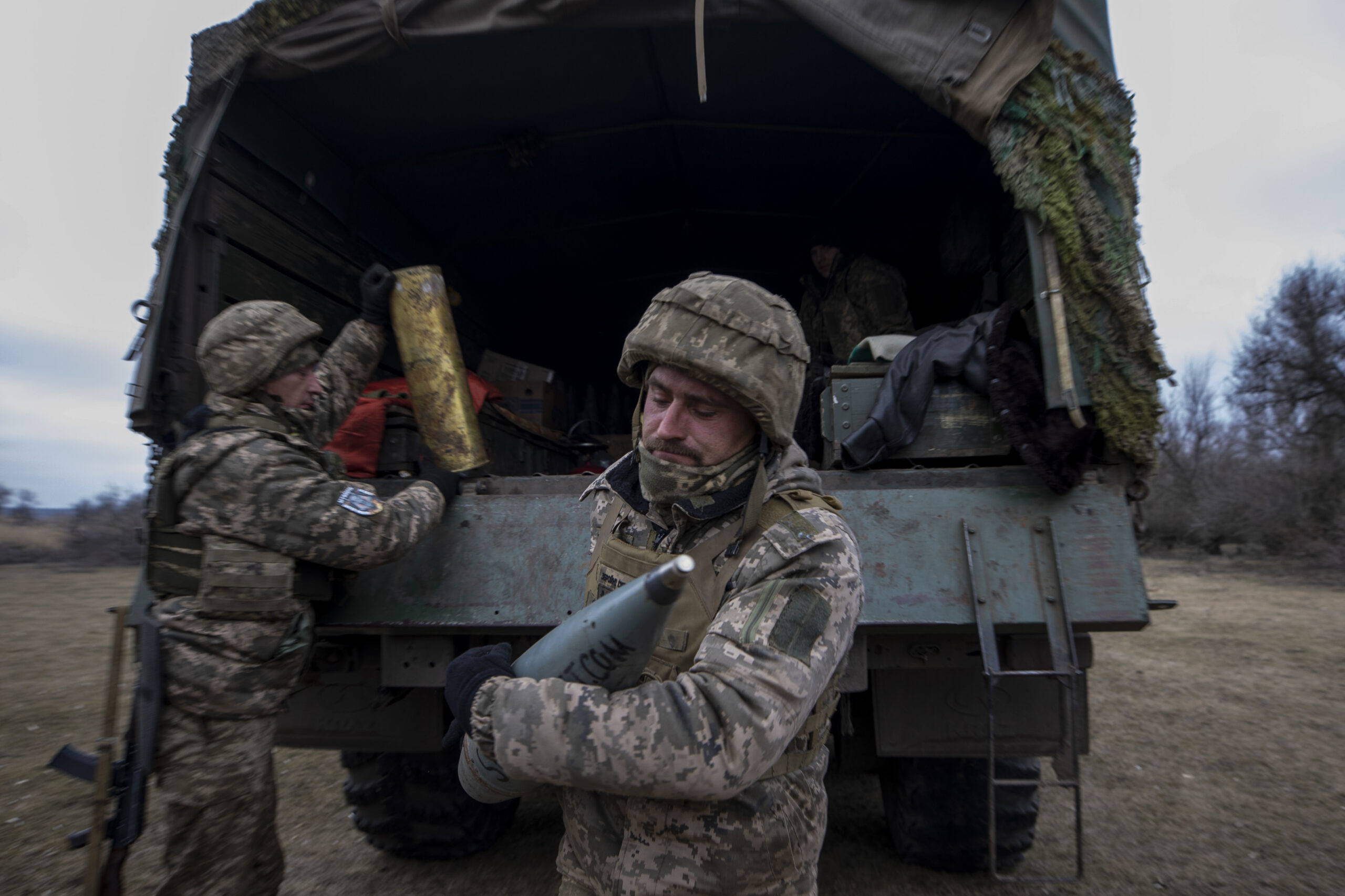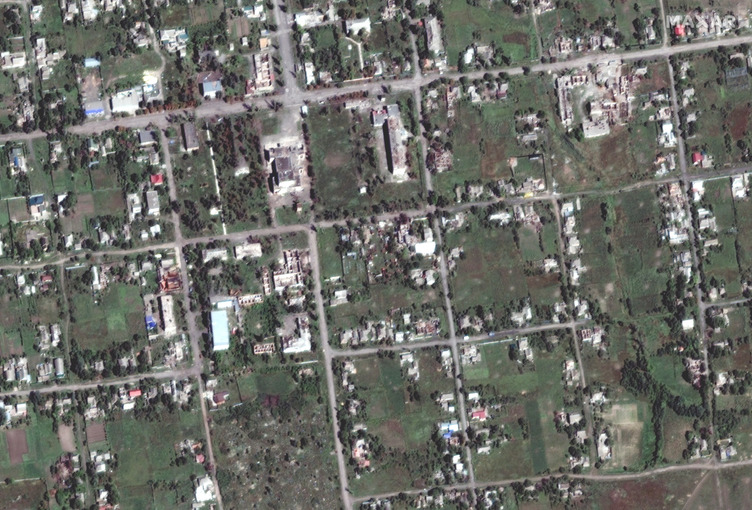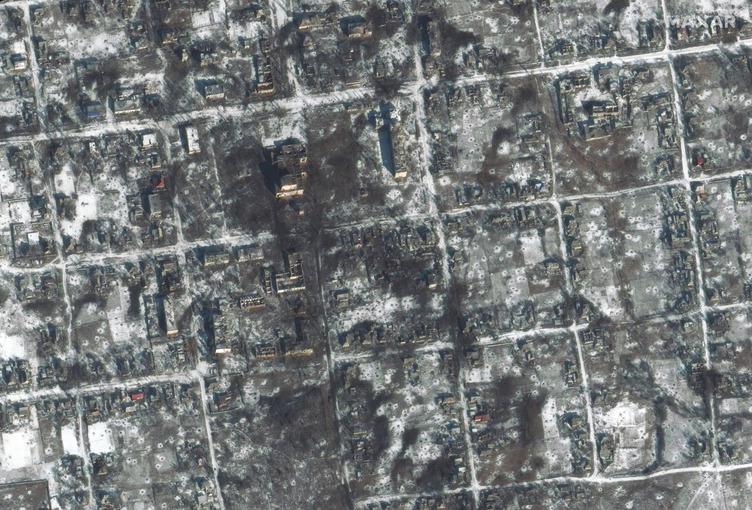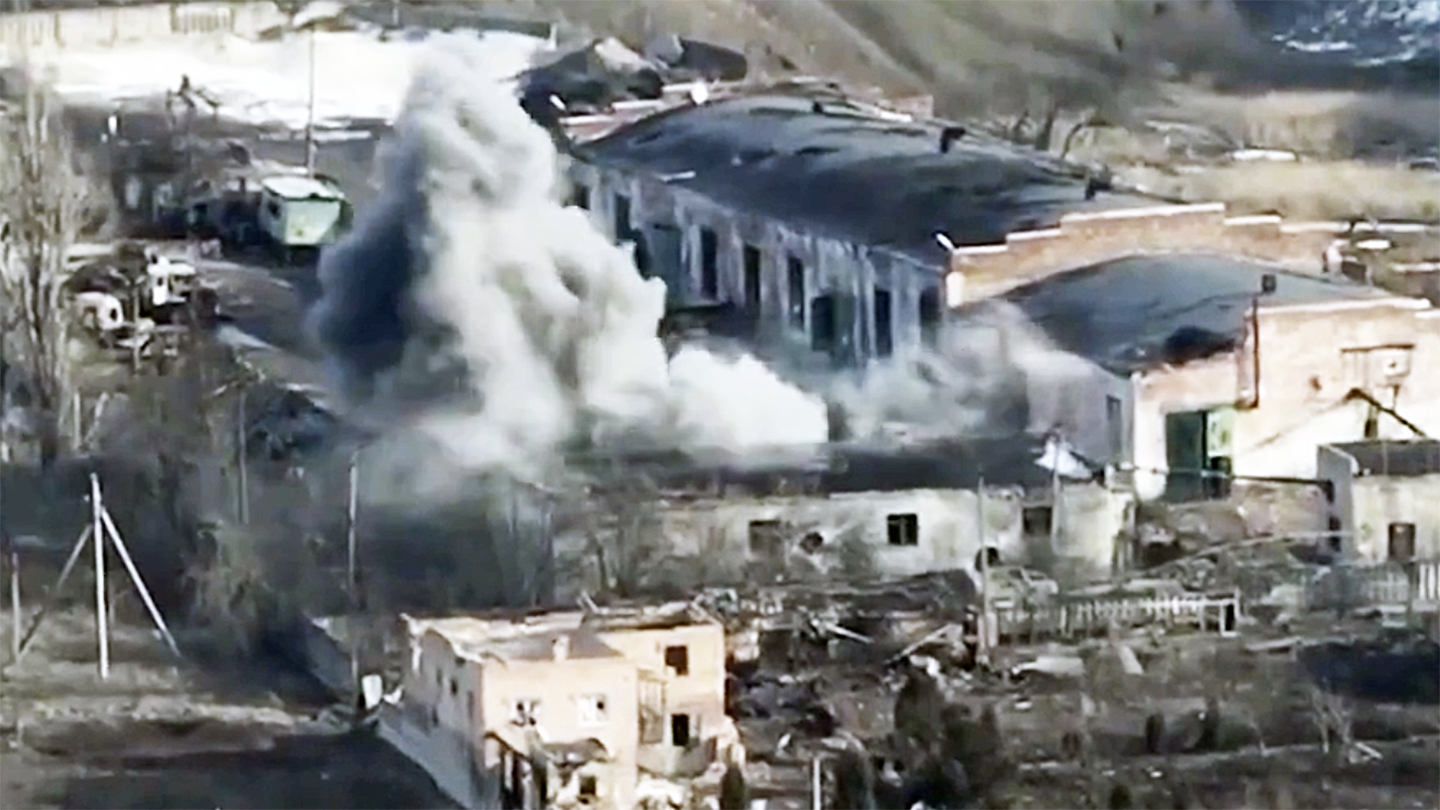As Russian forces move closer to capturing the embattled Donetsk city of Bakhmut, NATO Secretary General Jens Stoltenberg said Moscow has launched its long-anticipated offensive.
According to several media accounts, Ukrainian military officials are sealing off the city to non-combatants, potentially a sign that Kyiv could be considering surrendering the long-fought for coal mining town.
“Aid groups and civilians will not be able to enter Bakhmut starting on Monday, Ukraine’s military said, as fighting continued to intensify in Russia’s monthslong campaign to seize the strategic city in eastern Ukraine,” The New York Times reported.
“The Ukrainian Army said that it would no longer allow aid groups in the city because of the danger posed by street fighting. The ban on volunteer access could suggest a prelude to a Ukrainian withdrawal, although the Ukrainian military has insisted it retains control of the city, can resupply troops and can evacuate its own wounded.”
In his nightly message Monday, Ukrainian President Volodymyr Zelensky denied Bakhmut was surrounded.
“I thank everyone who is in combat!,” he said. “I thank all our warriors who prevent the occupier from surrounding Bakhmut, who destroy the enemy in the Vuhledar sector, leaving nothing but scorched marks on the ground, and who hold our other crucial frontline positions.”

The Ukrainian Armed Forces also deny the Russian Defense Ministry’s (MoD) claim that Russian forces have captured Krasna Hora, a village about five kilometers north of Bakhmut.
In arguing for continuing military aid to Kyiv ahead of tomorrow’s ninth meeting of the Ukraine Defense Contact Group, Stoltenberg told reporters Monday that the Russian offensive in the east is underway.
“I think the reality is that we have seen the start already,” he said. “Because we see in what Russia does now – President Putin does now – is to send in thousands and thousands of more troops, accepting a very high rate of casualty, taking big losses, but putting pressure on the Ukrainians.”
Stoltenberg said that “what Russia lacks in quality, they tried to compensate [for] in quantity, meaning that the leadership, the logistics, the equipment, the training, don’t have the same level as the Ukrainian forces. But they have more forces. And the Russians are willing to send in those forces and take a higher number of casualties.”
This new Russian offensive “just highlights the importance of timing,” Stoltenberg said. “It’s urgent to provide Ukraine with more weapons, the faster we can deliver weapons, ammunition, spare parts fuel to the Ukrainian front, the more lives we save, and the better we support efforts to find a peaceful, negotiated solution to this conflict.”
Before we head into the latest news from Ukraine, The War Zone readers can get caught up with our previous rolling coverage here.
The Latest
With Russia’s all-out war on Ukraine approaching the one-year mark, Stoltenberg said that defense ministers are going to be concentrating on increasing their stockpiles, especially of large-caliber ammunition.
Ukraine, he said, is firing far more ammunition than is currently produced.
Ministers will “focus on ways to increase our defense industrial capacity and replenish stockpiles,” he said. “The war in Ukraine is consuming an enormous amount of ammunition and depleting allied stockpots. The current rate of Ukraine’s ammunition expenditure is many times higher than our current rate of production. This puts our defense industries under strain.”

As an example, Stoltenberg said that “the waiting time for large-caliber ammunition has increased from 12 to 28 months. Orders placed today would only be delivered two and a half years later. So we need to ramp up production and invest in our production capacity.”
That process, he added, is underway.
“The good news is that several allies, including the United States and France, have already signed new multi-year contracts with the defense industry, enabling them to invest in increased production capacity,” he said. “I look forward to further progress. This is essential to ensure we can keep supporting Ukraine while protecting every inch of allied territory.”
The Economic Times claims that Pakistan has increased its military aid to Ukraine, including sending some 10,000 rounds for Grad multiple launch rocket systems.
“Pakistan has reportedly stepped up military supplies to Ukraine via a German port, simultaneously with the Poland route, to transfer rockets for use in multi-barrel rocket launchers,” The Economic Times reported, citing “people familiar with the matter.”
“Supplies of rockets were dispatched from the Karachi Port earlier this month and will enter Ukraine via Emden Port in Germany, said the people. More than 10,000 rockets meant for use in Grad multi-barrel rocket launchers have been shipped, they said.”
We first wrote about the burgeoning relationship between Pakistan and Ukraine in October. You can read more about that here.
Denmark has now given all its CAESAR self-propelled howitzers to Ukraine, according to the Ukrainian Defense Ministry (MoD).
The New York Times took a deep dive into how Russia uses waves of convicts fighting for Wagner as human cannon fodder to attack Ukrainian forces.
Those troops “have become an integral component of Russia’s military strategy as it presses a new offensive in Ukraine’s east: relying on overwhelming manpower, much of it comprising inexperienced, poorly trained conscripts, regardless of the high rate of casualties,” the newspaper reported.
“There are two main uses of the conscripts in these assaults: as ‘storm troops’ who move in waves, followed by more experienced Russian fighters; and as intentional targets, to draw fire and thus identify Ukrainian positions to hit with artillery.”
In interviews last week, half a dozen prisoners of war gave the Times “rare firsthand accounts of what it is like to be part of a sacrificial Russian assault.”
“These orders were common, so our losses were gigantic,” Sergei said. “The next group would follow after a pause of 15 or 20 minutes, then another, then another.”
Though many sources, including Stoltenberg, say that Russia has launched its offensive in the Donbas, Moscow remains wary of a potential Ukrainian offensive in Zaporizhzhia Oblast, something we wrote about in December.
As a result, Russia has been building up its defensive fortifications there, according to the U.K.’s Defense Intelligence directorate, citing satellite imagery.
Speaking of satellite imagery, Maxar Technologies on Sunday released a new set of images showing the intensity of fighting around Vuhledar in Donetsk Oblast.
In particular, they share two images that showed just how much the fighting has affected the village of Petrivka.


POLITICO is reporting that the Russians might have lost an entire brigade of the elite 155th naval infantry while storming that town.
“A large number of enemy forces, including the command staff, were destroyed near Vuhledar and Mariinka in Donetsk Oblast,” Oleksiy Dmytrashkivskyi, head of the united press center of the Tavriskiy District of Ukrainian defense forces, told POLITICO. “In addition, over the past week, the enemy lost about 130 units of equipment, including 36 units of tanks.”
Poland has started training Ukrainian tank crews, which you can see in this video below.
We are getting a rare look at a Russian R-37 air-to-air missile that was in a partially recoverable state.
The Vympel R-37M, or AA-13 Axehead, air-to-air missile, as we previously wrote about, was fired for the first time by a MiG-31 in 2011 and soon after entered full-scale production at the Tactical Missiles Corporation’s factory in Korolyov. The first operational unit to receive these missiles was the 712th Fighter Aviation Regiment in Kansk, in the Central Military District, at the beginning of 2018. You can read more about that and how the Russians use it here.
Russia’s all-out war is apparently taking a toll on its military elsewhere. Air Force. Lt. Gen. Alexus Grynkewich told reporters Monday that Moscow continues to draw-down equipment in Syria.
The Russians are continuing to have trouble with Ukrainian mines, like this T-72B tank that was disabled near Svatove in Luhansk Oblast.
Russian loitering munitions, like the Lancet drones, have been raining havoc on Ukrainian positions. In response, the Ukrainians claim they have developed screens that have successfully countered some of those attacks.
The Russians, however, did manage to destroy a Ukrainian Uragan 9P140 220mm multiple-launch rocket system, according to the Ukraine Weapons Tracker OSINT group. The location however is currently unknown.
Truth, justice, and the Russian Way? Russian Foreign Minister Sergey Lavrov has a slightly different take on Super Man’s catchphrase in describing Moscow’s actions.
This war has forced helicopter pilots on both sides to fly close to the ground. How close? Check out this video, that’s how close.
Speaking of helicopters, here’s something you don’t see every day. Apparently, a Russian Ka-52 Alligator helicopter tried landing on a stored Ukrainian Il-76MD cargo jet in occupied Melitopol, which you can watch in this video from the Russian Fighterbomber Telegram channel.
After several months of captivity, one of the defenders of Snake Island, which was initially captured by Russia and recaptured by Ukraine in June, has been reunited with his family after a prisoner exchange.
Speaking of Snake Island, the battle for that small rock in the Black Sea is the subject of one of three new documentaries produced by Ukraine’s Defense Intelligence directorate (GUR).
The film Air raid on Azovstal is about the air logistics operation in the spring of 2022 to supply the garrison of Mariupol defenders with the necessary cargo and evacuate the wounded. Ukrainian Maj. Gen. Kyrylo Budanov, head of the GUR, gave us exclusive details of that operation back in May. And in June, we had an exclusive interview with one of the members of that operation.
The film Kharkiv Counteroffensive highlights the offensive operation of the Ukrainian Defense and Security Forces in the fall of 2022 with the participation of the Kraken assault law of the Ministry of Defense of Ukraine that helped liberate almost the entire oblast.
The film Battle for Snake Island is dedicated to the struggle to restore Ukraine’s control over that small rock. The tape uses an exclusive video of the landing and combat operations of special forces on May 8 on the island.

Russia, however, is apparently not done with Snake Island.
A pair of Russian Su-24 “Fencer” bombers reportedly struck the island overnight on Feb. 11. It’s unclear what kind of damage the attacks did at the remote outpost and former flashpoint for the war last spring.
A Ukrainian woman severely injured in a Russian missile attack is showcasing her wounds to highlight the resilience of her nation.
And finally, as Russia continues to pound Ukraine’s power infrastructure, leaving millions without energy to heat their homes, Lithuanian actor Viaceslavas Mickevicius and a group of volunteers are producing stoves out of old car rims. See how in this video below.
That’s it for now. We’ll update this when there’s more to report.
Contact the author: howard@thewarzone.com
